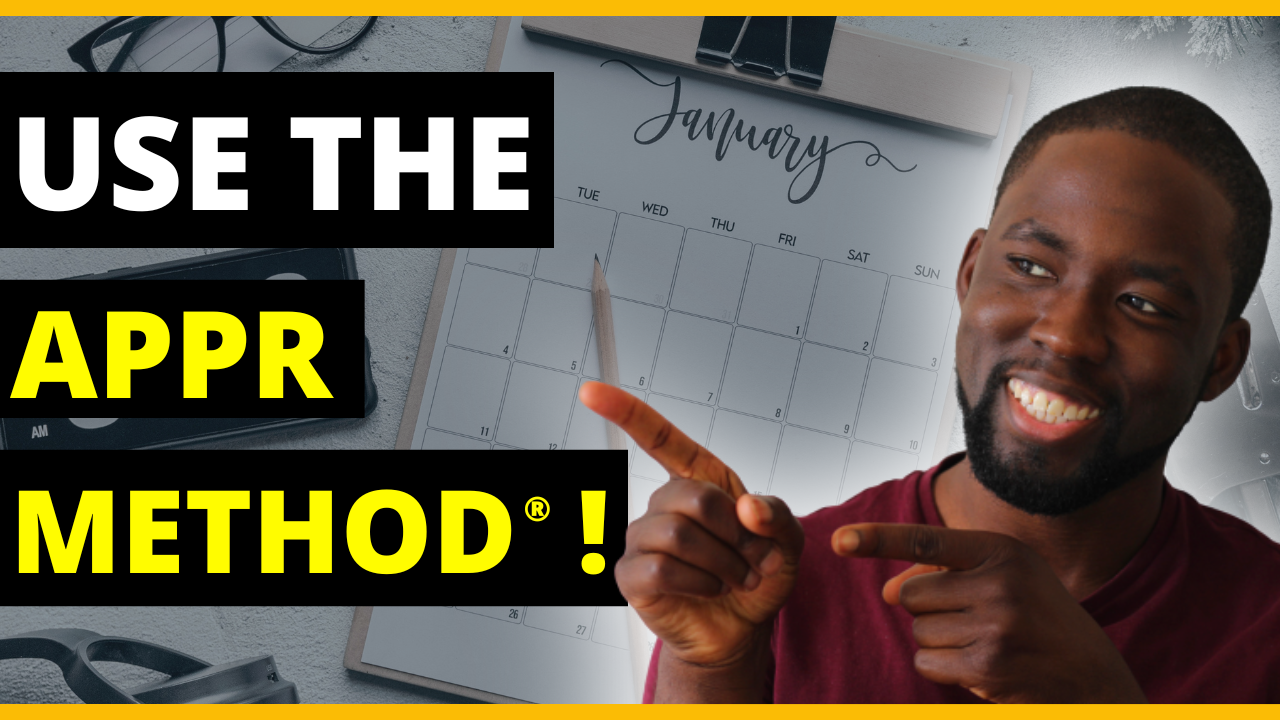How to do a performance review for your Life
Annual Personal Performance Reviews or APPRs, are important for revealing our progress overtime. It has allowed me to make smarter and wiser decisions for the following year. It has also given me the opportunity to experiment with things that were not made clear to me the previous year.
APPRs are more effective when you have a rhythm in place for attack and review throughout the year. This rhythm is key for intentional growth.
I’m going to explain the process I use to review my year. I track all this information on my Life Management System, which helps me organise and reflect upon my recordings. Furthermore, this review assumes you have a primary goal in mind, so if you want to follow along, make sure that you have a goal that you can refer to.
This is important because without review there is no way of determining our progress. It is an opportunity for us to know how to make changes moving forward. Too many of us move from one year to the next without intelligence. This process will give you the intelligence you need.
Most people are unable to reach their goals because they do not use a system. The APPR method is part of a larger system that helps keep you on track. When you fail to plan you plan to fail. Reviewing initiates the planning required to help you reach your goals.
Let’s get started!
Your success lives within your review
Questions are the answer. When you ask the right questions you set the stage to creatively discover the answers. A good APPR process requires good questions. This session will be structured around the following questions:
- Did you achieve your primary aim?
- How much effort did you give towards your goals?
- How aligned was this to your core values?
- What didn’t go well?
- What did go well?
- What are my lessons learned?
- How can things improve?
So with that said let’s get started!
Did you achieve your primary aim?
Your primary aim is a specific goal you want to achieve. This idea was generated from the book ‘Think & Grow Rich.‘ Having a primary aim allows you to focus on one thing, and reduce distraction. A primary aim is also the key to unlocking many other aims you may have in life.
If you were able to achieve your primary aim then great! For example, my primary aim in 2022 was to create digital courses and make sales. I’m proud to say I hit that aim. If you were successful, highlight what you achieved and what the metric for success was. Being clear about your metrics for success will help generate those metrics.
If you did not achieve your primary aim, it is still important to highlight what you did achieve. The next question may reveal this but you may want to address why you think you didn’t achieve your aim. This could be related to a whole lot of things which we will discuss for the next question.
How much effort did you give towards your goals?

The best way to answer this question is to rank it out of 10. This forces us to quantify, and add reasons to our efforts. If you gave 10 out of 10, 10 being the greatest effort, and you achieved your goal, good on you!
If you believed you provided a 10 and didn’t achieve your goal, think about whether your goal was a large stretch goal. You have to remeber to be fair to yourself. It is likely there were many little goals you achieved from that larger goal. Was there anything else you could have done to make the pursuit of your goal easier? Think about the acronym SCHEMES; it stands for:
- Space
- Cash
- Help
- Equipment
- Materials
- Expertise
- Systems
When setting goals for the future think about these elements. Also, be fair to yourself, measuring what you can and can’t do. This may not sound motivational, but to help you manage your goals try setting them every 12 weeks. This forces you to reshape the type of goals you set making them more manageable. This works when you have weekly mini reviews aligned to the goals.
How aligned was this to your core values?
Your values are what you deem as most important to you. They shape the decisions you make. Values could be: Health, Wealth, Relationships, Happiness, Autonomy, Purpose, Mastery, Integrity or Authenticity. If you don’t know what your values are there are some methods you could try:
- Brainstorm some words and pick the ones that feel right to you
- Google ‘Values list’ and select from your chosen source
- Use my Life Management System to help you out, as there are more than 220+ values you can choose from
If you didn’t work in alignment to your highest values, think about what got in the way of this? Think about people, routines, and environments. SCHEMES is also a good strategy for this as well.
The reality is, as much as values are important, principles are even more important. This is because principles are the backbone of a specific success. They are the unchangeable ingredients to ensuring you are successful. If your values are not aligned to the principles of success, you won’t be successful. If you are successful, there may not be longevity in this success.
What didn’t go well?

Here is a chance to explicitly highlight what has not gone well. List out what didn’t go well, along with why it didn’t go well. This allows you to start thinking about barriers to your success. Think about outcomes and value based results. Here are some examples.
- Outcome based challenges: I was not able to lose 10Kg which made me feel a little defeated. Instead I lost 7Kg which is still positive. This is likely due to the fact that I stopped walking 10K steps every day halfway through the programme.
- Value based challenges: My focus shifted from wanting to create a service based business. My head began to focus more on creating a product based business. This is because the stress of working with clients 1:1 was taking it’s toll. I realised I want things to be a little easier.
As you can see with the outcome based goal, I highlighted the success metric and the output achieved. It was then followed by the reasons why it was not achieved. With the value based goal, it focuses on the changes to mindset and why this was. The change is usually due to a shift in what is seen as important.
What did go well?
Now you want to highlight what did go well. Again, this needs to be about the goal that you set. When you know the metric for success, it is easier to write what went well. You can use a similar format used for what didn’t go well.
Alongside this, write out why you think this went well.
What are my lessons learned?

It is time to write about the lessons learned from what didn’t go well, as well as what did go well. Let me explain further. For the things that didn’t go well, write out any mitigations you believe will prevent this from happening again.
For the things that did go well, write out what you believe you should continue, if you are going to continue with this goal.
How can things improve?
Based on all your scribblings think about what can improve. This has probably already been written, but this is a time to be crystal clear with your thinking.
The core questions to answering this question are:
- What do I want?
- Who do I want to become?
- What must I do?
- What must I have?
- What must I feel?
When you base your improvements around these questions, you have a stronger idea of what to write.
The key takeaways are:
- Determine if you achieved your primary aim, if not why not
- Highlight how much effort you pushed on your goal, were you fair to yourself and could this change in the future?
- Define if you were aligned to your values, If not what values should you have been aligned to?
- Reveal what didn’t go well, why didn’t it go well?
- Reveal what did go well, why did it go well?
- Clarify what you can improve
Now you can see why questions are the answers. This newsletter will help you stay grounded when reviewing your performance. This is known as the APPR method, and a process I use. It works well for me and does not need to be complicated at all.
You can complete this in your journal, notebook or online note-taking system. I use my Life Navigation System to record all this information. You can grab a copy of it here. There is power in weekly reviews as opposed to doing annual reviews. Share this with anyone who you think needs to read it.
If would allow me too, I can help you in the following 3 ways:
- Secure the Job: The step-by-step course that unveils systems, strategies and success when it comes to progressing your job and applying for new roles
- The Independent Consultant UK: A guide to becoming a contractor in the UK. This is a step-by-step walkthrough of my experiences, hosting exclusive information to help you transition into the space of contracting.
- Book a call: Let’s have a chat to focus on your life areas and where you can the biggest impact. If it makes sense, we can progress towards procuring coaching or mentoring.
Build your portfolio career using systems intelligence & positive psychology.
Join other subscribers who get 1 practical tip every Sunday afternoon.
By entering your name and email address you agree to receive content and promotional offers centred around personal and professional development from Michael Tabirade. You can unsubscribe whenever you want to.








